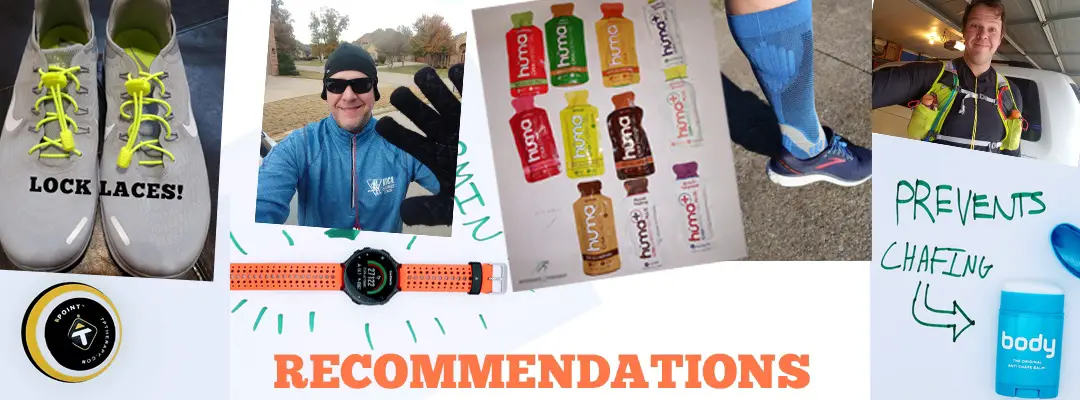 If you’ve never had a running coach then just pretend that you’re the running coach. We are all guilty of not listening to our inner coach. Sometimes we even let our emotional insides get the best of us and make silly and stupid mistakes. One of my silliest mistakes was thinking that I had prepared adequately for my first marathon race. I finished the race but was off my mark by about 30 minutes (ouch!) – leg cramps (outer quads) got the best of me at mile 18. If you plan on getting a running coach in the near future, more than likely, a few of these nuisances will be on their list. Here are 6 things running coaches wish you would stop doing:
If you’ve never had a running coach then just pretend that you’re the running coach. We are all guilty of not listening to our inner coach. Sometimes we even let our emotional insides get the best of us and make silly and stupid mistakes. One of my silliest mistakes was thinking that I had prepared adequately for my first marathon race. I finished the race but was off my mark by about 30 minutes (ouch!) – leg cramps (outer quads) got the best of me at mile 18. If you plan on getting a running coach in the near future, more than likely, a few of these nuisances will be on their list. Here are 6 things running coaches wish you would stop doing:
Letting emotions overpower logic
We have days where we wake up and we just don’t want to put in the time or effort to run. Our mind turns into emotional warfare waged with the logical side of our brain. When this happens, try to snap out of it. In NLP there is a neat trick that can possibly help you get rid of these emotions. Next time you start fighting with yourself try this technique:
- close your eyes
- when you think of the negative emotions countdown backward from 5
- when you reach one pretend that you leave the emotions above you as you drop down into a trap door that suddenly appears under your feet
- the trap door will take you to another area in your mind that is protected from your emotions
- if the emotions rise up again, repeat the countdown backward from 5 and drop through the trap door underneath your feet.
- When you drop down it’s important to make the sound, at least in your mind, like “Whoosh,” as you drop through the floor.
Making up excuses
No excuses! If your schedule is running you tired and you keep on opting for excuses, you need to adjust your schedule. Talk to your training coach. They will be more than happy to help eliminate excuses by creating a more realistic schedule and training cycle.
Maybe you are just not into running right now? Maybe you need a long break, maybe an entire Summer without running? I don’t recommend taking off this long unless you physically can’t run or this is the only way you will start running again someday. When you quit for 2 to 3 months your performance starts to decline drastically. Sometimes extended vacations are what you need to help put your body and mind back into training the next time you get ready to run.
Related: The Most Common Excuses For Not Running And How To Avoid Them!
When a runner starts spouting off excuses, there is normally a deeper reason behind it. I’m not talking about an occasional once or twice occurrence, but a frequently occurring situation. This could be habitually skipping your weekly interval training session or long run because of some excuse. Sometimes, as I stated before, you need to have a discussion with your coach. Most of the time the coach is already seeing this occur and he has already addressed the issue in some manner with you whether subtly or in a flat-out discussion. This can come in the form of questions such as are you:
- Always tired?
- Getting enough sleep?
- Having any issues during your training sessions?
If you’re continuously having bad runs you might need to go through a little post-mortem analysis to figure out what’s going on. Here are 5 questions to ask yourself after a bad run.
Not including weight training
Weight training is great to help strengthen your muscles that are both supportive and complementary to your running muscles. Four great leg exercises are squats, lunges, calf raises, and deadlifts. A weight training session should last between 20 and 40 minutes. Aim to perform 3 sets of 10 to 15 reps for each leg exercise. When I perform my lunges I count out my reps per leg not combined, so really it’s 3 sets of 10 to 15 reps on each leg. Plan on training at least once a week. You don’t need a gym to perform strength training. Look into getting a good kettlebell or medicine ball to help perform strength training in your home or on the go.
Do you need a strength training regime for runners? Check out this detailed post about essential strength training for runners.
Comparing yourself to others
One of the biggest demotivators is comparing yourself to better runners or elite runners. First of all, progress takes small steps, not leaps and bounds when it comes to running. Trying to attempt some type of training that is well beyond your immediate zone of training puts you in harm’s way of injury.
Secondly, comparing yourself to others puts extra weight on your self-esteem and physically and mentally weighs you down. Not only does it physically zap the energy right out of you, but the mental strain also gives you unwanted and unneeded stress.
Overtraining
Your coach or yourself created a training plan that you are supposed to follow. Yes, from time to time, you need to adjust the numbers to recalibrate your body with what it is capable of achieving. However, there is a time and place to do so. Overtraining creates a slow build-up of adrenal fatigue. Adrenal fatigue is essentially chronic fatigue brought on by overtraining and constant stress in one’s life.
Common symptoms of adrenal fatigue are:
- chronic tiredness
- tired in the morning (even after 8 hours of sleep)
- get sick often
- crave salty foods.
Overtraining leads to injury, check out my post on 10 ways to prevent running injuries with easy-to-follow advice!
Not listening to your body
Ultimately, it’s your body and you need to become attuned to your own body and its needs. Yes, a good catch can start to see patterns emerge that might be flags or precursors to overtraining. But the coach is not you, new runners have the hardest time with determining when to push on and when to quit. Unfortunately, there is no one size fits all solution. In time you will become more in sync with your body and know when it’s time to forge ahead or reel it back in a little bit.
Related: Most Common Running Mistakes You Must Avoid At All Costs!
| Help support me and subscribe to my YouTube channel. YouTube video - 30 ways to make your runs less painful! Coach Scott's Credentials:
|
To sign up for a FREE half marathon training schedule, log sheet, and pace predictor CLICK HERE.

Recommended gear for runners
Connect with me:
| facebook.com/BeginnerToFinisher/ |


5 thoughts on “6 things running coaches wish you would stop doing”